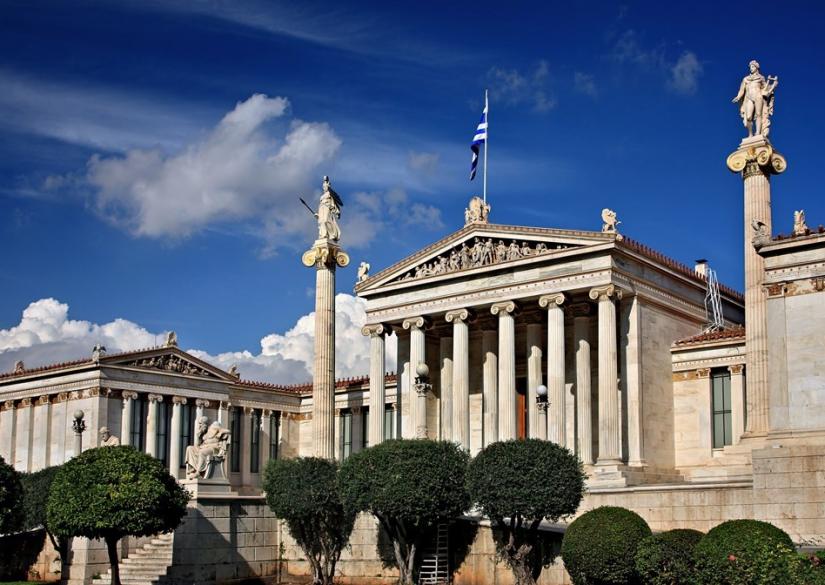Investing in Your Children’s Future in Greece
For families considering a move to Greece, securing a Golden Visa is only the first step. The next, and arguably most important, decision is ensuring a world-class education for your children. A new country presents a world of opportunities, and choosing the right school is fundamental to a successful and happy transition for the entire family.
Fortunately, Greece offers a rich and diverse educational landscape. From prestigious international schools with globally recognized curricula to the immersive experience of the public system and high-quality universities, there is a pathway to suit every family’s aspirations and budget.
This guide provides a comprehensive overview of the educational options available to expat families in Greece for 2025. We will explore the top international schools in Athens and Thessaloniki, delve into the university system, and explain how the public schools welcome foreign students, helping you make an informed decision that invests in your child’s global future.
Part 1: International Schools – A World-Class Education in a Global Environment
Greece boasts a robust and diverse international school sector, primarily concentrated in Athens and its suburbs, with excellent options also available in Thessaloniki. These institutions are well-equipped to serve the needs of expat families, providing a smooth educational transition and a high standard of learning for students from pre-school through to secondary level.
Families can choose from a variety of globally-recognized curricula. Prominent options include schools following the British curriculum (offering IGCSEs and A-Levels), such as St. Catherine’s British School and Campion School. For those preferring the American system, institutions like the American Community Schools (ACS) Athens offer the American High School Diploma and Advanced Placement (AP) courses.
Furthermore, the International Baccalaureate (IB) Diploma Programme is a widely available and highly respected option, offered by many of the top-tier schools, ensuring students are prepared for entry into prestigious universities worldwide. The educational landscape is also enriched by other national schools, such as the Deutsche Schule Athen (German School of Athens) and the Lycée Franco-Hellénique, providing further choice for a truly multicultural education.
Key Curricula Explained:
- The British Curriculum (IGCSEs & A-Levels): This system is known for its depth and academic rigor. Students work towards International GCSEs (IGCSEs) around age 16 and then specialize in a few subjects for their A-Levels, which are the standard for entry into UK universities and are recognized globally.
- The American Curriculum (American High School Diploma & AP Courses): This system offers a broad and flexible education. Students earn a High School Diploma, and many schools offer Advanced Placement (AP) courses, which allow students to earn college-level credits while still in high school.
- The International Baccalaureate (IB) Diploma Programme: A highly respected and challenging two-year program for students aged 16-19. The IB is recognized by universities worldwide and is known for developing critical thinking, research skills, and a global perspective. Many of the top schools in Greece are authorized IB World Schools.
Top International Schools in Greece
| School Name | Location | Curricula Offered | Typical Annual Fees (2025 est.) |
| St. Catherine’s British School | Athens (Kifissia) | British (IGCSE, A-Levels), IB Diploma | €9,000 – €16,000+ |
| Campion School | Athens (Pallini) | British (IGCSE, A-Levels), IB-style options | €8,500 – €14,000+ |
| ACS Athens (American Community Schools) | Athens (Halandri) | American, IB Diploma, AP Courses | €7,500 – €14,500+ |
| International School of Athens (ISA) | Athens (Kifissia) | IB (PYP, MYP, Diploma) | €10,000 – €18,000+ |
| Byron College | Athens (Gerakas, new campus in Pallini) | British (IGCSE, A-Levels) | €8,000 – €13,000+ |
| St. Lawrence College | Athens (Koropi) | British (IGCSE, A-Levels) | €9,000 – €14,500+ |
| Pinewood – The American International School | Thessaloniki | American, IB Diploma | €7,000 – €12,000+ |
Admissions Process:
The admissions process for these schools is competitive. It typically involves submitting an application form, previous school records, and recommendation letters. An entrance exam (usually in English and Mathematics) and an interview with the student and parents are also standard parts of the process. It is advisable to apply well in advance, as many schools have waiting lists for certain year groups.

Part 2: Higher Education – Greek Universities on the World Stage
Greece is not only a place to live but also a place to pursue higher education. Several Greek universities are globally ranked and are increasingly offering postgraduate programs taught entirely in English, making them accessible to international students.
- For EU Citizens: Once you become a Greek citizen after seven years, your children will have access to the public university system, where tuition for undergraduate studies is free for EU nationals.
- For Non-EU Residents (including Golden Visa holders): You can apply to English-taught programs. While undergraduate options in English are limited in public universities, there is a growing number of Master’s and PhD programs designed for an international audience.
Leading Universities with English-Taught Programs:
- National and Kapodistrian University of Athens (NKUA): The oldest university in Greece, offering a range of Master’s programs in fields like health sciences, economics, and classics.
- Aristotle University of Thessaloniki: The largest university in Greece, with select English-taught programs, particularly at the postgraduate level.
- Athens University of Economics and Business (AUEB): A highly respected institution for business, finance, and marketing, with several internationally recognized Master’s and MBA programs in English.
- The American College of Greece (Deree): A private, US-accredited institution offering a wide range of undergraduate and graduate programs taught in English, following the American liberal arts model.
Tuition Fees: For non-EU students, tuition fees at public universities for English-taught Master’s programs typically range from €1,500 to €9,000 per year, which is highly competitive for European higher education.

Part 3: The Public School System – An Immersive Path to Integration
For families planning a long-term future in Greece and wanting their children to become fully bilingual and integrated, the public school system is a viable option. Education is free for all residents, including Golden Visa holders.
The Key to Success: Support for Non-Greek Speakers
The Greek Ministry of Education has established support systems to help foreign students integrate. The most important of these are:
- Reception Classes (Τάξεις Υποδοχής): These are special classes within mainstream schools designed for students with little or no knowledge of Greek. Students spend a portion of their day in these classes receiving intensive Greek language instruction before gradually transitioning full-time into the regular classroom.
- Intercultural Schools: These specialized schools have teachers trained in intercultural education and place a strong emphasis on supporting students from diverse linguistic and cultural backgrounds.
Enrollment Process:
Enrolling your child in a public school is a straightforward process. You will need to visit the school closest to your residence and provide:
- Proof of address.
- Your child’s health and vaccination booklet.
- Your residence permit (Golden Visa).
A Pathway for Every Child
Choosing the right educational path is one of the most significant decisions a family can make. Greece’s diverse and high-quality educational landscape ensures that every child, whether they thrive in a multicultural international school, an immersive public school, or a world-class university, has the opportunity to reach their full potential.
By aligning your choice with your family’s long-term goals, you can provide your children with an education that not only prepares them for academic success but also enriches them as responsible, engaged global citizens.
Frequently Asked Questions (FAQ)
- Are the diplomas from international schools in Greece recognized worldwide?
Yes. Diplomas such as the International Baccalaureate (IB), British A-Levels, and the American High School Diploma (especially with AP courses) are recognized and accepted by top universities across the globe, including in the US, UK, Canada, and Europe.
- What is the school year in Greece?
The school year for both public and international schools typically runs from early September to mid-June, divided into three terms.
- Is it difficult for a foreign child to adapt to a Greek public school?
While there is an initial adjustment period, the support from Reception Classes and the naturally welcoming nature of Greek society help children adapt well. Younger children, in particular, tend to pick up the language quickly and make friends easily.
- Can my child transfer from an international school to a Greek university?
To enter a Greek public university for undergraduate studies, students must typically pass the Panhellenic national exams, which are conducted in Greek. Therefore, students in international schools who wish to attend a Greek public university would need to achieve a high level of fluency in Greek. However, they can apply to private colleges or English-taught postgraduate programs without this requirement.
 Greece — +30 698 557 8998
Greece — +30 698 557 8998
 Turkey — +90 506 022 30 00
Turkey — +90 506 022 30 00
 UAE — +971 52 913 5599
UAE — +971 52 913 5599
 Egypt — +20 110 114 9411
Egypt — +20 110 114 9411





